Alright, let’s get straight to the point: there’s no one‑size‑fits‑all answer to “morning or night shower?” Both have perks, both have quirks, and the “best time shower” really depends on what you want out of the experience. In this friendly deep‑dive we’ll walk through the science, the everyday benefits, and some practical tips so you can decide which routine fits your life like a perfectly timed beat.
Think of this as a chat over coffee (or a steaming shower, if that’s more your vibe). I’ll share what experts say, sprinkle in a few personal anecdotes, and give you a clear roadmap to craft a shower routine that feels purposeful—not just a habit you glide through on autopilot.
Morning vs Night Defined
First, let’s pin down what we actually mean by “morning” and “night” showers. It isn’t about the clock alone; it’s about the intention behind the water.
What Counts as a Morning Shower?
Usually any rinse taken between 5 am and 9 am fits the bill. Most of us reach for a shower to shake off sleep, prep for a workout, or simply start the day smelling fresh. The goal is usually an energising boost.
What Counts as a Night Shower?
Anything after dinner and before you hit the pillow—roughly 7 pm to midnight—generally falls under a night shower. This is the time we’re looking to wash away the day’s grime, unwind, and signal our bodies that it’s bedtime.
Why Timing Matters
Our bodies run on a circadian rhythm, a 24‑hour internal clock that regulates temperature, hormone release, and alertness. According to a 2025 study by Harvard‑affiliated researcher Shahab Haghayegh, a warm shower 1–2 hours before sleep drops core body temperature, which in turn cues melatonin and can cut sleep latency by up to 15 minutes. On the flip side, a quick cold burst in the morning spikes adrenaline and circulation, giving you that crisp “I’m awake!” feeling.
How Body Reacts
Every splash triggers a cascade of physiological responses. Below is a quick look at what’s happening under the surface.
| Aspect | Morning Shower | Night Shower |
|---|---|---|
| Core Temperature | Rises briefly, then cools → energising | Warm water → delayed cooling → sleep signal |
| Circulation | Increased blood flow, brightens skin | Improved peripheral circulation, muscle relaxation |
| Skin Oil | Removes overnight sebum, preps for sunscreen | Washes away daily pollutants, reduces bedtime grime |
| Stress Hormones | Cold burst lowers cortisol, boosts norepinephrine | Warm water stimulates parasympathetic system, lowers BP |
Morning Benefits
Wake‑Up Boost
There’s nothing like a stream of water hitting your skin to shake off the morning fog. Warm water raises your core temp, while a final 30‑second cold splash spikes adrenaline and norepinephrine, making you feel alert within minutes. If you’ve ever tried a cold‑water “wake‑up call,” you know the rush is real.
Skin‑Care Primer
While you’re still in the shower, you can easily rinse away the night’s sweat, skin cells, and any lingering oils. That clean canvas means your morning serums, moisturisers, and sunscreen can actually sink in—no blocked pores. As Dr. Alok Vij of Cleveland Clinic points out, “A morning rinse preps the skin for the day’s protection routine” (Cleveland Clinic).
Hair Reset
Morning showers are a lifesaver for “bedhead.” Overnight, the scalp produces a thin layer of oil that can make hair look greasy or flat. A quick rinse (and a cool splash at the end) helps re‑open the cuticle, giving you that fresh‑out‑of‑the‑shower bounce without needing a full‑blown hair day.
Boosted Workout Performance
If you hit the gym before work, a warm shower loosens muscles and joints, while a cold burst post‑exercise reduces inflammation. Studies in the Journal of Sports Science show that a post‑workout cool‑down shower can cut perceived muscle soreness by up to 20%.
Potential Downsides
Hot water (above 104 °F/40 °C) can strip natural oils, especially if you linger. Folks with eczema or psoriasis might notice extra flaking. The trick? Keep the water warm, not scorching, and finish with a brief cool rinse.
Night Benefits
Better Sleep
Warm water raises body temperature, and the subsequent cooling period signals the brain that it’s time to wind down. Research from Harvard Medical School suggests a 10‑minute warm shower taken 1–2 hours before bedtime reduces sleep latency and can improve deep‑sleep percentages. It’s like a natural lullaby for your nervous system.
All‑Day Dirt Gone
Throughout the day you pick up pollen, dust, pollutants, and – let’s be honest – the occasional snack crumbs. A night shower removes that grime before it transfers onto your sheets, keeping your bedding fresher for longer. As the Cleveland Clinic dermatologist shared, “Going to bed clean cuts the amount of bacteria that can colonise your sheets” (Cleveland Clinic).
Acne & Oil Management
For oily or acne‑prone skin, the night is the critical window when sunscreen, makeup, and environmental pollutants sit on the pores. A gentle cleanser at night helps prevent clogged pores, reducing the chance of breakouts the next morning.
Stress Release
Warm water activates the parasympathetic (rest‑and‑digest) nervous system, lowering blood pressure and heart rate. Think of it as a mini‑spa at home. If you add a few drops of lavender or eucalyptus oil to your washcloth, you get an extra dose of aromatherapy that many find soothing.
Potential Downsides
Showering too close to bedtime (under 30 minutes) can actually keep you awake—your body hasn’t had time to cool down. Also, excessively hot water can raise skin temperature, making it harder to fall asleep. Aim for a comfortable warm shower (around 104 °F) and give yourself at least an hour before hitting the pillow.
Science Behind the Timing
Cool‑Down Theory
Our bodies naturally dip in core temperature about two hours before we fall asleep. A warm shower tricks the body into a temporary heat surge, prompting blood to flow to the skin where it can shed heat faster. The rapid cooling that follows aligns with the body’s natural sleep‑prep signal.
Cold‑Shock Benefits
Cold bursts release norepinephrine, a hormone that boosts mood, focus, and even pain tolerance. A 2022 study in Chronobiology International found that a 30‑second cold splash after a warm shower improved alertness scores by 12% the next morning.
Skin Barrier Considerations
Dermatologists agree that water hotter than 120 °F (49 °C) can damage the lipid barrier, increasing dryness and irritation. For most skin types, staying under 104 °F (40 °C) keeps the barrier intact while still delivering the soothing warmth.
Choosing Your Best Time
Now that the “why” is clear, let’s talk about the “what works for you.” Below is a quick decision‑tree you can use while you sip your morning coffee or unwind with a nightcap.
| Goal | Ideal Time | Key Tips |
|---|---|---|
| Morning alertness | Morning | Warm water, finish with 30‑sec cold blast |
| Better sleep | Night | Warm shower 60‑90 min before bed, cool down at the end |
| Acne control | Night | Gentle cleanser, avoid harsh scrubs before sleep |
| Hair styling ease | Morning | Cool rinse to close cuticles, apply light leave‑in conditioner |
| Stress relief | Night | Warm water, dim lights, optional aromatherapy |
Notice any overlap? That’s because many of us enjoy both benefits on different days. Feel free to mix and match—maybe a morning wake‑up shower on weekdays and a relaxed night soak on weekends.
Expert Tips & Myth‑Busting
Tip #1: Keep It Short
Ten minutes is plenty. Longer showers waste water and can dry out skin. If you love long steamy sessions, try a low‑flow showerhead to keep the water usage in check.
Tip #2: Temperature Balance
Warm (≈ 104 °F) for night, lukewarm (≈ 98 °F) for morning. End with a quick cold splash for an extra alertness kick.
Tip #3: Choose Gentle Cleansers
pH‑balanced and fragrance‑free options keep your skin barrier happy. Harsh soaps can strip oils, especially if you shower twice a day.
Myth: “Night showers make you cold in bed.”
False. The warm water actually helps your body cool faster after you step out, which is the signal your brain needs for sleep.
Myth: “Morning showers are only for people who hate their hair.”
Not at all. Even if you have short hair, a morning rinse removes overnight oil and preps the scalp for styling products.
Build Your Ideal Shower Routine
Morning Routine (5‑minute version)
- Turn water to comfortably warm.
- Quickly cleanse face & body (30 seconds each).
- Finish with a 30‑second cold blast—focus on the scalp to awaken.
- Pat dry, apply lightweight moisturizer + SPF.
Evening Routine (10‑minute version)
- Start with warm water (around 104 °F) for 5 minutes.
- Use a gentle cleanser to wash away the day.
- Optional: add a few drops of lavender oil to the washcloth.
- End with a 1‑minute cool rinse to trigger the temperature‑drop effect.
- Dry gently, apply a richer night cream. Keep lights dim to continue the wind‑down vibe.
Remember, consistency beats perfection. Pick one of these routines and stick with it for a week. Notice how you feel in the morning and how quickly you fall asleep at night. Tweak as needed—maybe you need a longer cool down or a shorter overall shower. The goal is a routine that feels intentional, not a chore.
Wrap‑Up
So, what’s the final verdict? There isn’t a single “best time shower” that works for everyone. Morning showers excel at waking you up, prepping skin for the day, and giving hair a fresh start. Night showers shine when it comes to washing away daily grime, calming the nervous system, and nudging your body into a restful state. Your personal choice should line up with your schedule, skin type, and what you most want to achieve—energy, clear skin, better sleep, or pure relaxation.
Now that you’ve got the science, the benefits, and a practical checklist, go ahead and experiment. Try a warm, ten‑minute night shower tonight and see if you drift off faster. Tomorrow, set a quick morning routine and notice how much sharper you feel at work. And hey, share your results in the comments! I love hearing how everyday habits evolve into something that truly supports our wellbeing.
Got questions about water temperature, skin products, or timing? Drop a line—let’s keep the conversation flowing.

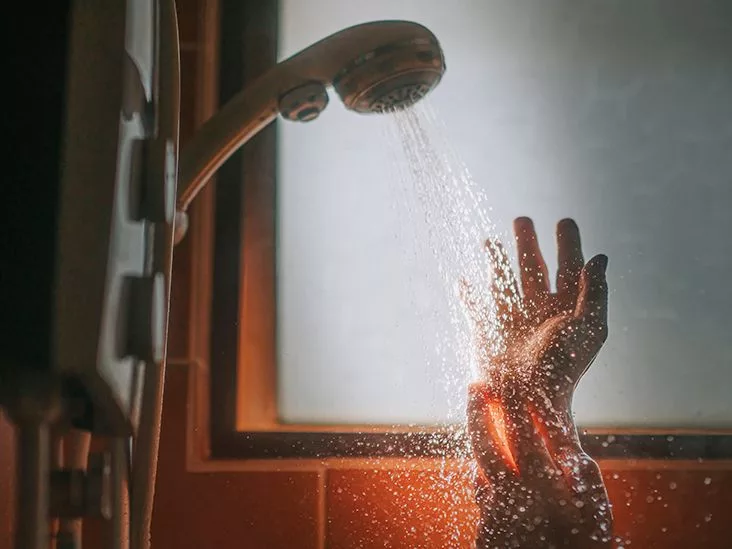



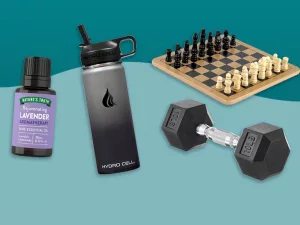
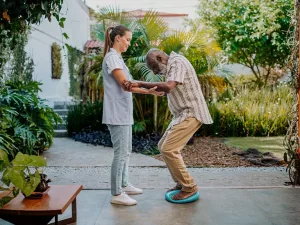

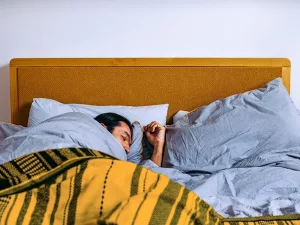




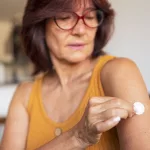











Leave a Reply
You must be logged in to post a comment.